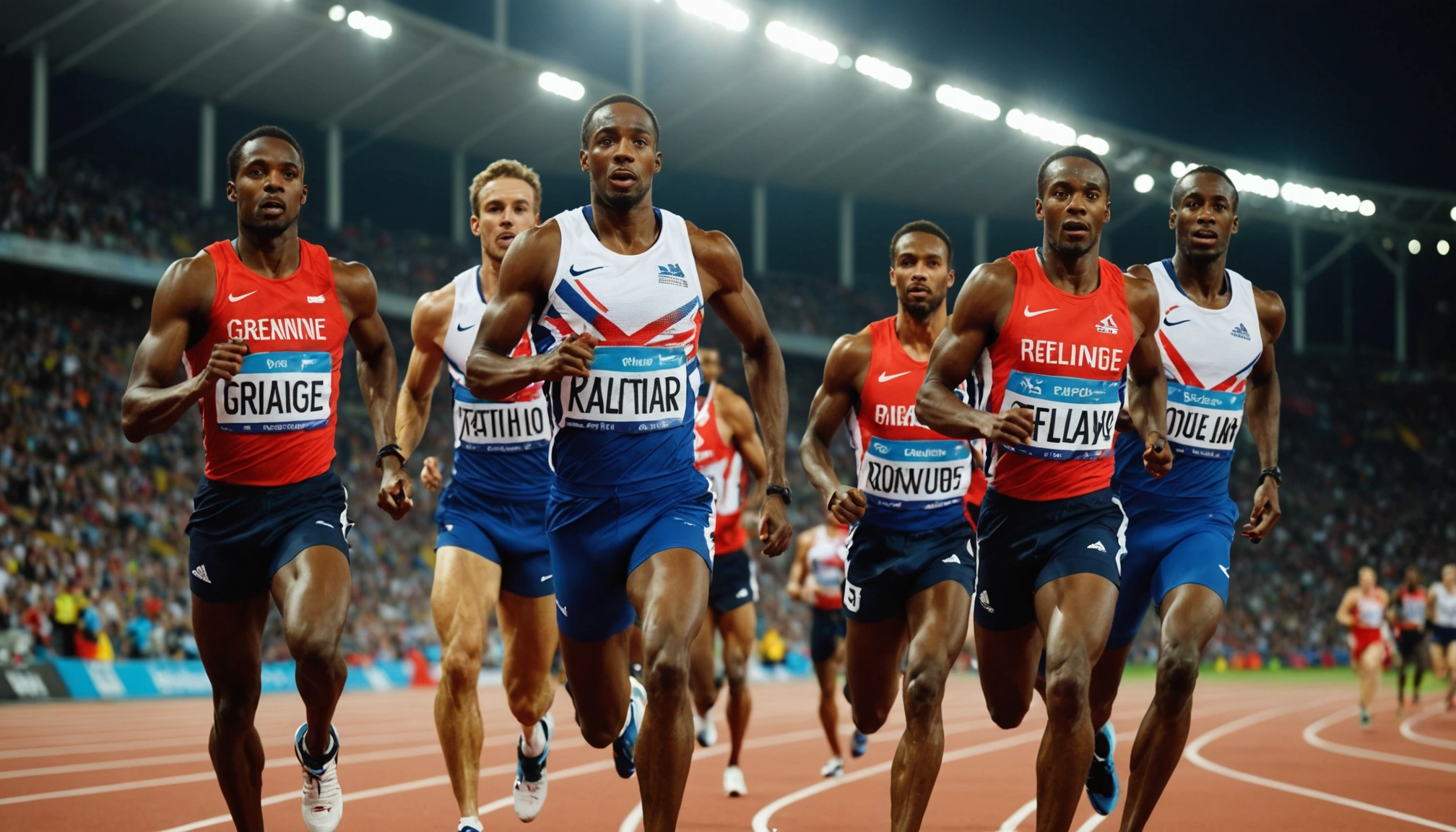What Went Wrong For GB's Relay Squads At Tokyo Worlds?
Explore the challenges faced by Great Britain's relay teams at the Tokyo World Championships and the lessons for future success in athletics.

By Editorial
Introduction To Great Britain's Relay Challenges At Tokyo
Great Britain's relay teams arrived at the Tokyo World Athletics Championships with high hopes, fresh from a highly successful Paris Olympics relay campaign. However, the outcomes in Japan told a different story, marked by unexpected mistakes and disappointing finishes. This article delves into what went wrong for the GB relay squads, analysing key moments, expert opinions, and the implications for future competitions.
What Happened In The Men's 4x100m Relay?
The men's 4x100m relay was perhaps the most glaring example of disappointment. A botched baton exchange between Eugene Amo-Dadzie and Jona Efoloko led to a Did Not Finish (DNF), a stark contrast to last year's bronze medal performance in Paris. Former sprinter Jeanette Kwakye highlighted that Amo-Dadzie set off too early, leaving Efoloko stranded and unable to receive the baton.
London 2012 Olympic champion Greg Rutherford described the error as "heartbreaking," noting that the changeovers in the earlier legs were flawless, but the final handover was a critical failure. He lamented that despite being late in the season, it seemed the athletes "forgotten how to pass the baton," an essential skill in relay racing.
The Importance Of Relay Skills Beyond Raw Speed
Darren Campbell, head of sprints, relays and hurdles at UK Athletics, has long emphasised that relay success depends not just on speed but on impeccable handover technique, discipline, and team coordination. In relays, a smooth baton exchange can make or break the race, regardless of individual sprinting talent. Campbell points out that the incoming runner must call "hand" at just the right moment, allowing the baton to be passed swiftly and seamlessly.
Lessons From The Women's 4x400m Relay Performance
The women's 4x400m relay team, usually a reliable medal contender, finished last in their heat—a shock result considering their track record of medalling in nine out of the last ten world championships. The quartet, including Poppy Malik and Victoria Ohuruogu, were unable to secure qualification for the final, prompting stern criticism.
Greg Rutherford called the performance "not good enough," especially given the intense focus and preparation for the event. Dame Jessica Ennis-Hill questioned where it all went wrong for this historically successful team, underscoring the high expectations placed on British athletes in relay events.
Factors Affecting Performance Under Pressure
Several factors can impact relay performances, such as weather conditions, athlete fitness, and psychological pressure. The Tokyo championships' tough conditions may have played a role, but experts agree that with proper preparation, these challenges should be manageable. The failure to qualify suggests a lapse in execution that goes beyond external factors.
Bright Spots And Remaining Opportunities
Despite setbacks, there were positive outcomes. The men's 4x400m relay team managed a season-best performance to reach the final, demonstrating resilience and potential for medal contention. Likewise, the women's 4x100m squad secured their place in the final, with world 200m silver medallist Amy Hunt still to join the lineup, offering hope for a strong finish.
As the championships drew to a close, Great Britain and Northern Ireland had accumulated three medals—two silvers and one bronze—ranking 22nd in the medal table. While this fell short of their target top-eight finish and the ten-medal haul from 2023, there remain chances in remaining events such as the women's 800m and men's 5,000m.
Funding And Support For British Athletics
UK Sport allocated £20.45 million in funding to British Athletics for the Olympic cycle leading to Los Angeles 2028, a reduction from the previous cycle. Jack Buckner, UK Athletics CEO, expressed disappointment at this cut, feeling the recent successes warranted more investment.
Greg Rutherford emphasised that the relay squads receive substantial support, with multiple personnel dedicated to optimising performances. This makes the Tokyo relay failures more puzzling and underscores the need for reviewing preparation and execution strategies.
For insight into how funding and athlete support work in British sport, one can compare with other disciplines covered by British Gymnastics’ recent successes, highlighting the importance of investment and talent development.
How Can GB Relays Improve Moving Forward?
Improvement hinges on returning to the fundamentals of baton passing and maintaining composure under pressure. Coaches and athletes must prioritise relay drills, communication, and precise timing. Learning from errors in Tokyo, the teams should integrate psychological resilience training to better handle championship stresses.
Additionally, staying informed on tactics and athlete conditions across sports can provide valuable insights. For example, reviewing how teams manage transitions in football can offer parallels; for more on this, see our coverage of latest football gossip and transfer strategies that often discuss team dynamics and timing.
Conclusion: Reflecting On Tokyo And Looking Ahead
The Tokyo World Championships exposed vulnerabilities in Great Britain's relay squads, highlighting the razor-thin margins and precision required at the elite level. While the outcomes were disappointing, the experience provides invaluable lessons to refine technique, teamwork, and mental strength.
With continued investment, expert coaching, and athlete dedication, GB can rebuild its relay dominance. As the focus shifts to upcoming events and the Paris 2024 Olympics, the relay squads must convert these setbacks into motivation to reclaim their place on the global podium.
Related topics
Editorial
Sports expert at SportsScoop
Specialist in sports analysis and journalism
Related articles
Want to read more?
Explore our comprehensive collection of sports articles and analysis, or contact us for more information.



